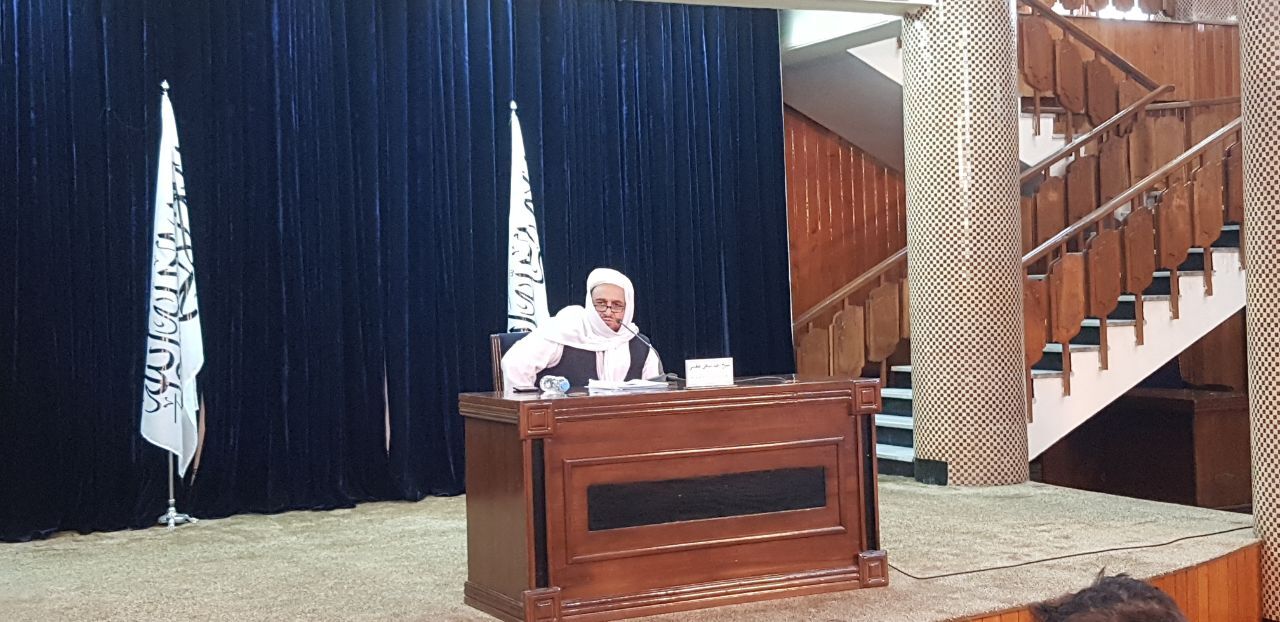Anger as Taliban bans women from attending university with men and sets list of subjects they can study
‘How will we work without having to interact with men at all?’ ask Afghan women criticizing the new rules
The Taliban has officially announced that women in Afghanistan will not be allowed to attend classes at the university level with men and institutions will have to segregate classes based on gender with the syllabus due for review.
The move has sparked fears women will be alienated from the education system as rights activists and students point out universities may not have the resources to carry out these changes.
The ultra-conservative regime had earlier said that co-education will be banned under the new government. On Saturday, the new higher education minister of the Taliban government, Abdul Baqi Haqqani, officially announced the change and laid out a series of rules that will govern women’s access to higher education in Afghanistan.
Speaking at a press conference, Mr Haqqani said women and men will no longer study in the same class. “We have no problems in ending the mixed-education system,” he told reporters.
Female students will also only be allowed to be taught by women professors. He added that the subjects being taught at universities would be reviewed.
Earlier, the Taliban announced that the women attending universities will have to follow a strict Islamic dress code and wear an Abaya (robe) and Niqab (face cover that only leaves space for the eyes). Many universities that opened this month in the war-torn country followed the pre-emptive rules and divided classes with curtains.

Attempting to put across a more progressive veneer, the minister said the situation this time had changed greatly from the last Taliban rule -- where women were barred from education completely.
“Compared to the past the number of educational institutions have increased dramatically,” Mr Haqqani said. “This gives us hope for a future, prosperous and self-sufficient Afghanistan... we will continue from where they were left.”
Rights activists and female students have expressed worries that the new rules may still end up alienating women from the education system in Afghanistan, and eradicate the progress made in the last two decades.
Krishma Feda, an attorney and women’s rights activist in Nangarhar province, told The Independent that the segregation rules will end up being a “discouragement” for universities and female students. “The number of girls in public and private universities is lower than of men, so most faculties are unable to separate classes.”
“They want to teach the female students by female lecturer, but universities don’t have enough female lecturers to solve this problem immediately,” she said. “The responsibility of government is providing environment for everyone of this society, not establishing restrictions,” she says.
Ms Feda also argues that the Taliban’s claims of providing rights to women according to Islamic Sharia law is also a guise for pushing their own stringent code. “Islam gives us many rights,” she said, adding that the Taliban are making laws “by their own choices for females that will be never acceptable.”
“Many Muslim countries let boys and girls study together. I did my higher education in a public university with the boys and I did not see any problem in this environment,” she added.
Where are the female professors? Where will you hire women from if you don’t let them study?
The Taliban minister in his address said people will accept the end of co-education. “The people are Muslims and they will accept it,” Mr Haqqani added while announcing new rules. However, female students say their freedom is being curtailed with these rules.
“I studied here for one and half years in Kabul and in my class of 60-70 students, 25-30 were women,” says Aqilah Ebrahimi, a postgraduate student, as she worries about her future and her sister’s who is pursuing her undergraduate degree. “Now everyone is waiting to see whether they will be able to attend universities or not.”
Mr Haqqani also insisted in the presser that there were enough female teachers to teach female students and, where they were not available, alternatives could be found without breaching rules.
“It all depends on the university’s capacity,” he said. “We can also use male teachers to teach from behind a curtain, or use technology.”
However, Ms Ebrahimi also echoes the concerns of other activists. “Where are the female professors?” she asks, “Where will you hire women from if you don’t let them study?”
Ms Ebrahimi says by ending co-education, the Taliban government is ending the prospects of women having a job or work in a normal world.
“You can divide classes but no companies hire only women,” she says. “How will we work without having to interact with men at all? Your colleagues and bosses could be males.”
As a student who has studied both at an Afghan University earlier and an Indian university, Ms Ebrahimi says not letting girls study with the opposite gender is going to have a lasting impact on them. “I studied in an all-girls school but when I got to college, I felt shy in interacting with boys, it was a big problem.”
“There should be no discrimination between genders, people should be able to study and work with each other. But the Taliban have this mindset against women, they think women should not interact with any man outside their family... I just don’t understand that.”
She says her resolve for moving to another place has been cemented by the new rules. “Taliban regime is not good for women, and also for society, because women make the half of the society,” she adds.
Join our commenting forum
Join thought-provoking conversations, follow other Independent readers and see their replies
Comments
Bookmark popover
Removed from bookmarks